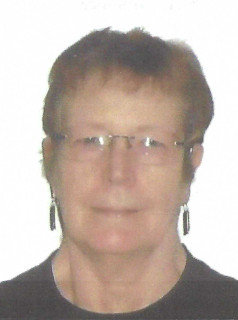Your Brain on Love: Oxytocin the Love Hormone
The month of February is filled with reasons to celebrate love, which is why today we are focusing on oxytocin. Known as the love, or cuddle hormone, oxytocin is produced by a gland at the base of the brain, and secreted into the body. This hormone works differently on men and women, but produces similar results in most research. A 2012 study found that by stimulating a release of this chemical, manually, men had a greater chance of feeling the “bonding” sensation with their children than without it.
A Mental Response
While the chemical release causes a physical reaction, the response is mental. During sex, oxytocin is released, usually having a greater effect on women, but causing sensations for both genders. This is what makes men and women feel so close after intercourse. It isn’t simply that a physical closeness was achieved, but that the direct response of oxytocin and serotonin has caused feelings of “love”. Fortunately, sex isn’t the only way to experience these responses. Some research has reported a link during hugging, kissing, cuddling, and even hand holding. Romantic physical interactions seem to stimulate the release of this chemical. It is likely that this dates as far back as the original human beings, who would use this chemical release when finding a mate, to draw a male and female together to procreate.
The Maternal Bond
Oxytocin doesn’t just act as a chemical bond between men and women in a romantic sense, this naturally released hormone also stimulates an emotional bond between parent and child. As mentioned above, studies have shown that males who were given manual doses of oxytocin felt closer to children than without it. For women, however, especially new mothers who are nursing, oxytocin is released naturally every time milk flow commences. Holding a baby and cuddling a baby can also create production of oxytocin, but nursing is known to be one of the most direct ways to create and stimulate its release. A study published in early 2007, monitored women during their pregnancies and found that higher levels of oxytocin levels lead to bonding experiences following the birth. From signing and reading to a newborn, to rocking him or her to sleep, or bathing him or her, mothers with higher levels of oxytocin were more likely to indulge in these bonding experiences.
Expressing Love
The expression of love presents itself differently to every couple. If you’re trying to make the month of February a little more romantic this year, try activating your partner’s oxytocin levels with a little physical contact. A relaxing massage, hand holding during a romantic walk, or something as simple as putting your arm around him or her at the movies can make a big difference. Make the effort to touch your partner, and make him or her feel special, and you are likely to see the action reciprocated. Studies have shown that humans are very tactile creatures, and that we require touch to create a bond with our partner and our families. From a pat on the back, to a hearty hug hello, touching goes a long way.
Staying Healthy
Here at Quick RX Refill, we want to make it easier for you to spend quality time with your family and loved ones and experience all the things that life offers, especially that oxytocin bond. Therefore, we offer our unique online prescription refill service. Simply sign up for a one on one consult with a registered doctor, explain your symptoms or previous prescription, and have your new prescription processed within hours. Our dedicated, professional team will then forward your prescription to a local pharmacy for a convenient pickup.

WARNING: Limitations of Online Doctor/Medical Consultations and Online Prescriptions, QuickRxRefills Cannot and Will NOT Prescribe, Dispense, or Resell any and all medications Narcotics/Controlled Substances (this policy is fully enforced by the Drug Enforcement Administration (DEA)) for Anti-depressants, Pain, Anxiety, Weightloss, Sleep, ADHD/ADD, Anabolic Steroids, Testosterone Replacement Therapy and any and all Medications that contain GabaPentin or Pseudroephedrine including non-controlled substances or any medications that are considered controversial, Off Labeled (Growth Hormone aka HGH) or recalled in nature such (i.e. Retin-A, Accutane). Furthermore, QuickRxRefills is not a substitute for an office based physician in your location nor is it a substitute for Emergency Medical Care or 911. If you do experience a "true" medical emergency your are encouraged to pick up the phone and dial 911 as soon as possible.






